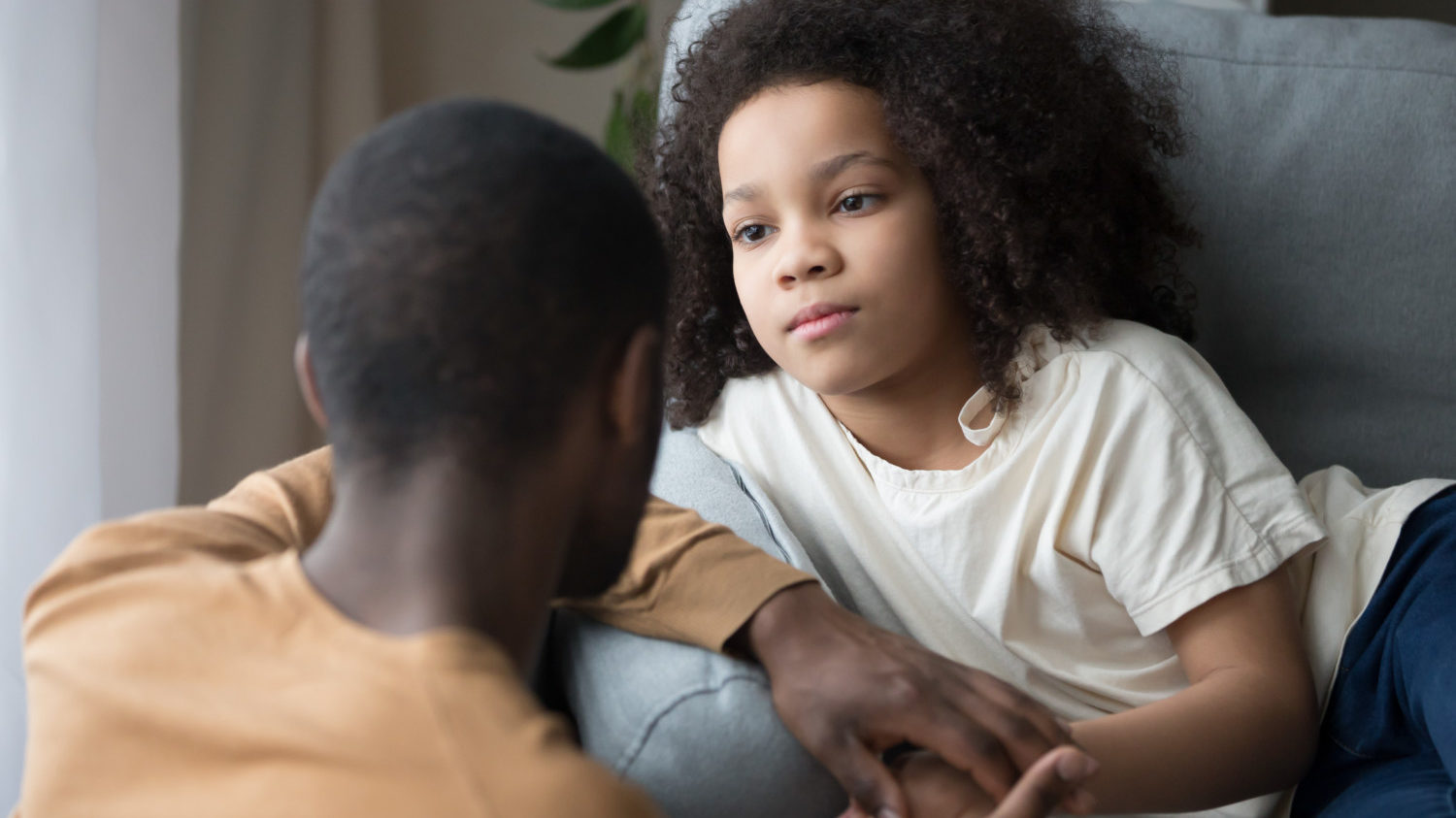Many parents look forward to hearing what their little ones have been up to at preschool. But often the question is met with a single-word answer or a shrug.
It can be difficult talking to preschoolers about their thoughts, but know that it’s likely not you that makes them close off. It’s often hard for kids to transition from one activity to the next or to organize their thoughts. Here are some tips that can help you unlock the vault and get your kids to open up about their days away from you.
Model by Sharing Your Own Day
With young children, it helps to establish a tradition of checking in with each other daily. This builds trust and a safe space for them to open up. Before asking a preschooler about their day, parents can model positive behavior by talking about what happened during their own day. According to Fatherly, kids who are hesitant to open up won’t share any faster if parents are rattling off several questions. This is when parents should amp up their patience.

Give Them Downtime First
We all want to ask 10 billion questions when we pick our kids up from school. “How was your day? What did you do? Did you like your snack? Was so-and-so mean again?” But kids have been following rules and orders for several hours and oftentimes need a break. You could try asking more fun questions, like which of their favorite songs they want to play on the car ride home, or what they want to do when they get home, and save the other ones for later. This way you’re still communicating and showing interest without overloading.
Playing catch in the yard or coloring to music are also great ways to help decompress from the day and reset. After a little while, kick off a conversation by saying, “Teach me something you learned today.”
Play a Talking Game
Playing with Lego or eating a snack together can give your child space to organize their thoughts before they jump into their thoughts on school, and they might even bring things up without any prompting. If this doesn’t work, you can try playing a talking game. For example, the “sad and glad game” can encourage preschoolers to open up without feeling overwhelmed.
This is where you take turns talking about what made you glad and what made you sad that day, by saying, “I was glad today because … ” or “I was sad today because … ” You could also play “highs and lows,” where you list what made your day and what made you sad or frustrated.

Reframe Questions as Statements
If your child used to share every little detail about preschool but is suddenly clamming up, it could be an indication that something is off at school. (Or it could simply be they need space.) In these cases, consider reframing questions into statements that invite a response. Instead of asking, “Are you worried about your upcoming dance recital?” for example, you could say, “A lot of kids feel nervous days before they perform,” and see how they react.
Make the Questions Silly
Humor is a great disarmer; asking if they ate sardines and pickles for their snack that day might make them say, “No! I ate crackers and cheese!” This also gives kids a chance to correct their parents, which can be fun for preschoolers (or kids of any age).

Make Them Feel Heard
When your preschoolers do open up, show them you’re actually listening. Asking followup questions, like how something that happened made them feel or mentioning how hard something might have been to deal with, can show you are actively listening. Saying things like, “I can understand how that made you feel,” or, “I think I’d feel the same way if that happened to me,” are ways to show your sympathy.
This can also be a great time to tell a relevant story about your own childhood. Did you make a similar mistake once or have something just as embarrassing happen to you? Showing your vulnerability demonstrates trust. Children feel safer knowing they can confide without feeling judged.
Help Them Solve Their Own Problems
We know it’s hard, but whenever possible it’s best to help kids solve a personal problem themselves rather than taking care of it for them. If your child is having an issue, ask thoughtful questions like, “What do you think you can do to fix that?” This is not only a confidence booster for your child, it is also empowering. The more times your child leaves a conversation with you feeling good, the more likely they’ll open up in the future.
This story originally appeared on Simplemost. Checkout Simplemost for additional stories.


